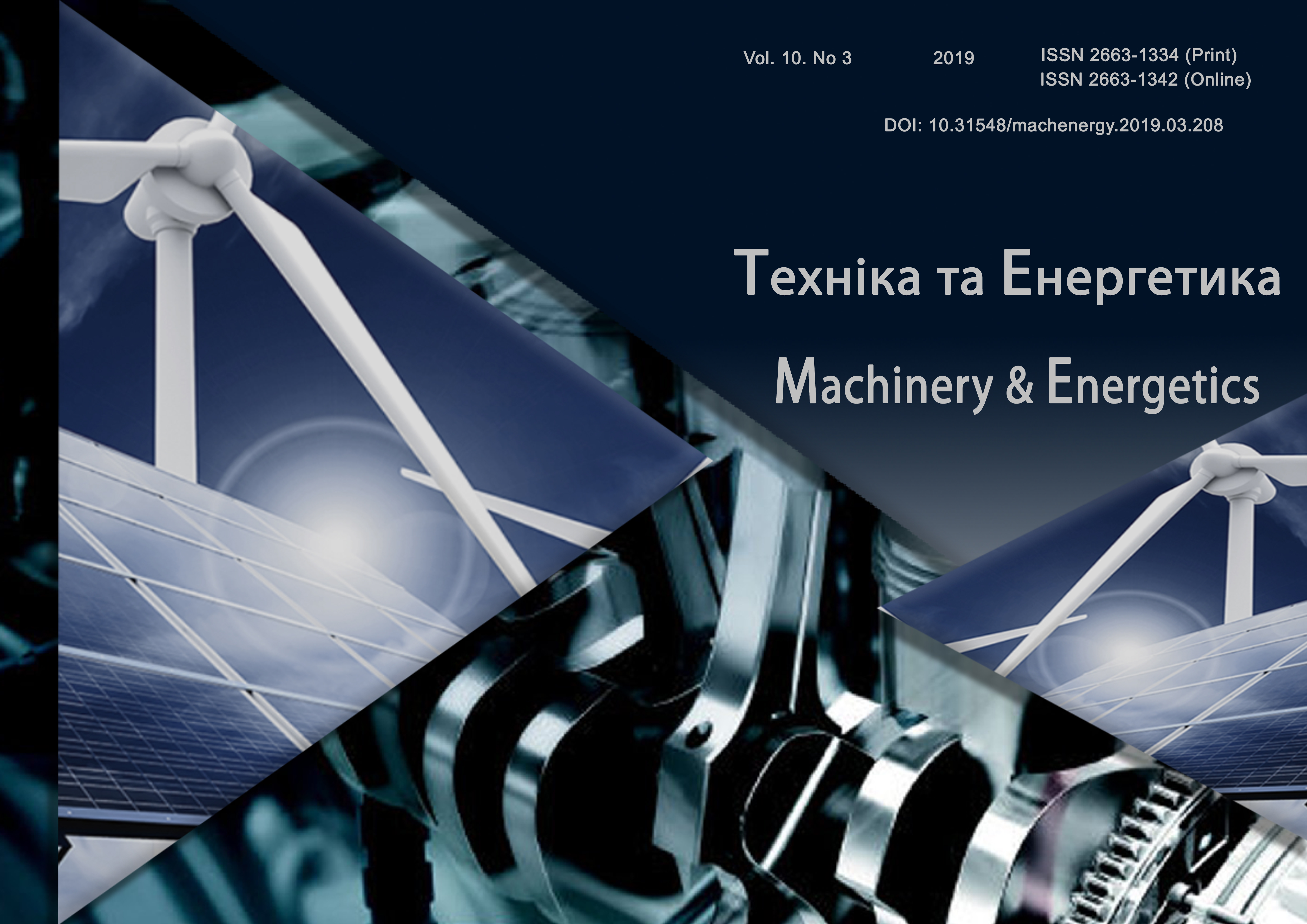Screw separator for removal of filtrate from grain bard
DOI:
https://doi.org/10.31548/machenergy2019.03.051Keywords:
grain bard, fugate, cake, screw separator, dehydration, filter, screw.Abstract
The analysis of the use of modern screw separators for the dehydration of liquid organic substrates, both agroindustrial complex and other sectors of the economy is done. The technological scheme is proposed and the design of a screw separator for dehydration of an grain distillery spent wash is developed. The main feature of the proposed screw-press separator is a two-stage process of dehydration of the input substrate.
The liquid substrate solution enters the first area of the screw separator, where the liquid fraction - fugate is removed through the openings of the pre-spin cylinder, and the solid fraction - the cake enters the second zone. In the second zone, the pre-pressed cake serves as a filter of fine purification through which a fugate is released through the pressure, which was released from the first zone and contains many solids in the liquid phase, such as yeast sediment in the bard . In this way, the fugate is being purified and exits through the openings of the final spin cylinder.
As a result of the research and development work, a new screw separator was created. The use of a two-stage system of dehydration of liquid substrates in a screw separator will significantly reduce the solids content in the liquid phas
References
KUGLER. Cjncepts for solid-liqusd separation. Available at: https://www.kugler-gmbh.de/wp-content/uploads/2018/09/KUGLER_ ProductsForSolid-Liquid-Separation_2018.pdf.
SM SEPARATORS SERIES - technical specifications. Available at: https://www.cri-man.com/Apps/WebObjects/Criman.woa/wa/viewFile?id= 742&lang= eng.
Screw Press Separator SP Series. Available at: http://www.waluftech.com.ua/img/content/EYS%20%%20%20SP.pdf.
Ovchynnikov D. (2017). Bioethanol as a motor fuel: advantages and disadvantages. Visnyk National Transport University. Series «Technical sciences». Scientific and Technical Collection. Kyiv: National Transport University, Issue 1 (37).
Сhupaylenko O. (2014). Development of the use of biopropellant for motor transport in Ukraine. Available at: http://nbuv.gov.ua/UJRN/Upsal_2014_13%282%29 __16.
Golub N., Potapova M. (2018). Modern Methods of Processing and Utilization of Grain Distillery Spent Wash. Innovative Biosystems and Bioengineering : international scientific e-journal. Vol. 2, No. 2. 125-134.
https://doi.org/10.20535/ibb.2018.2.2.125733
Flonts I. I., Chvartatskiy I. I., Kyryk O. M., Lesʹkiv M. S., Kachunʹ T. Y. (2019). Screw Separator. Patent of Ukraine for useful model. B30B 9/12 (2006.01), B30B 9/02 (2006.01), B01D 35/28 (2006.01), B01D 29/39 (2006.01), C02F 11/126 (2019.01), C02F 11/125 (2019.01). № 135353; declared 25.01.2019; published 25.06.2019, № 12.
Rogatinsky R. M. (2014). Scientific-applied bases of creation of screw transport-technological mechanisms: monograph. Ivan Puliuy TNTU, P/ 280.
Ivan Rogovskii, Luidmyla Titova, Viktor Trokhaniak, Oleksandra Trokhaniak, Serhii Stepanenko. (2019). Experimental study on the process of grain cleaning in a pneumatic microbiocature separator with apparatus camera. Bulletin of the Transilvania University of Brasov, Series II: Forestry, Wood Industry, Agricultural Food Engineering. Vol. 12 (61) No. 1. https://doi.org/10.31926/but.fwiafe.2019.12.61.1.10
Downloads
Published
Issue
Section
License
Relationship between right holders and users shall be governed by the terms of the license Creative Commons Attribution – non-commercial – Distribution On Same Conditions 4.0 international (CC BY-NC-SA 4.0):https://creativecommons.org/licenses/by-nc-sa/4.0/deed.uk
Authors who publish with this journal agree to the following terms:
- Authors retain copyright and grant the journal right of first publication with the work simultaneously licensed under a Creative Commons Attribution License that allows others to share the work with an acknowledgement of the work's authorship and initial publication in this journal.
- Authors are able to enter into separate, additional contractual arrangements for the non-exclusive distribution of the journal's published version of the work (e.g., post it to an institutional repository or publish it in a book), with an acknowledgement of its initial publication in this journal.
- Authors are permitted and encouraged to post their work online (e.g., in institutional repositories or on their website) prior to and during the submission process, as it can lead to productive exchanges, as well as earlier and greater citation of published work (See The Effect of Open Access).

